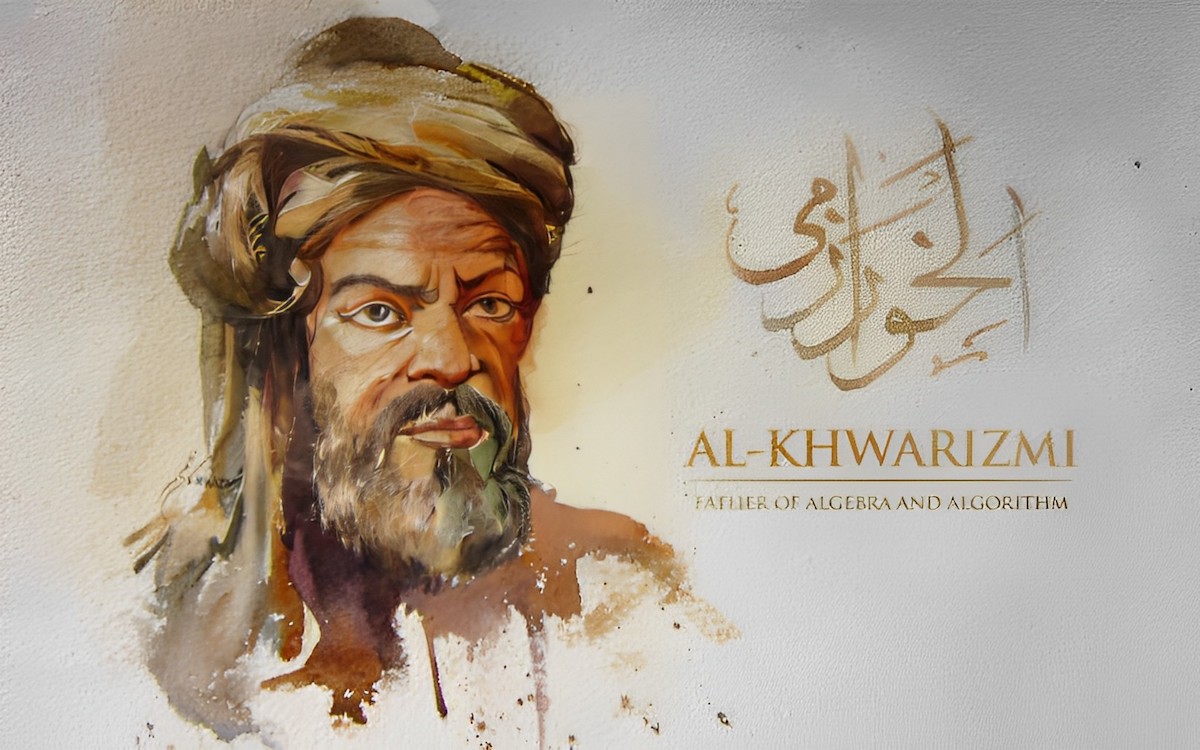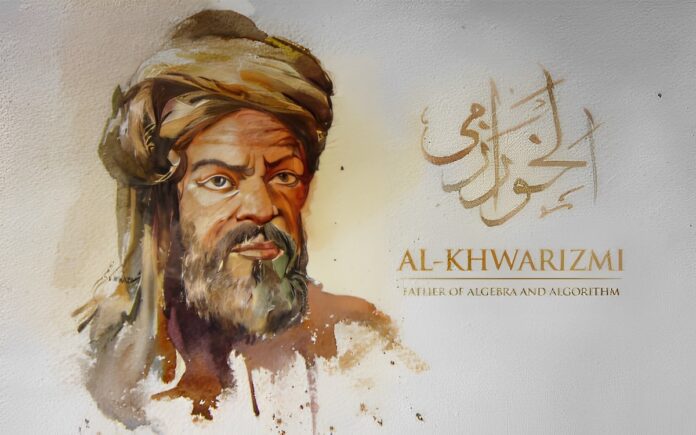by A Correspondent
In the ever-evolving digital realm, the word “algorithm” has transcended the confines of mathematics textbooks, becoming the driving force behind the virtual world we inhabit today. Gone are the days when individuals merely needed to grasp algorithms as part of their academic curriculum; now, navigating the internet effectively demands strict adherence to the intricacies of these algorithms.

Algorithms serve as the foundation of various disciplines, including mathematics, computer science, data analytics, and artificial intelligence. They are sets of rules meticulously designed to solve problems, forming the very basis of computing machines. In fact, it is safe to say that our modern world would be bereft of computers and smartphones without the existence of algorithms.
Delving into the origins of this ubiquitous concept, we find ourselves tracing a fascinating narrative that harks back to Khwãrezm, an oasis region in Central Asia situated along the Amu Darya River. NASA sheds light on the intriguing tale, stating, “One of Khwãrezm’s most famous residents was Muhammad ibn Mūsa al-Khwarizmī, an influential 9th-century scholar, astronomer, geographer, and mathematician known especially for his contributions to the study of algebra.”
Indeed, it was this revered figure, whose name derived from Khwarazm, his birthplace, who bestowed upon the English language the term “algorithm.” The Latinisation of his name, meaning “the native of Khwãrezm” in Persian, birthed the word algorithm. Al-Khwarizmi’s scholarly pursuits extended beyond mathematics, encompassing astronomy, geography, and more. His ground-breaking works continue to reverberate through the corridors of knowledge, leaving an indelible mark on human progress.
Al-Khwarizmi, whose existence dates back to approximately 780-850 CE, held various prestigious roles during his lifetime. As an astronomer and the head of the library at the House of Wisdom in Baghdad, he played a pivotal role in advancing scientific knowledge. Notably, he became the first person to treat algebra as a distinct discipline, earning him the epithet “the father of Algebra.”
The etymology of the word “algebra” can also be traced back to Al-Khwarizmi. Derived from the title of his book, “Al-Jabr,” meaning completion or re-joining, algebra found its roots in the mathematical concepts he expounded. In his seminal work, The Compendious Book on Calculation by Completion and Balancing (Al-Jabr), Al-Khwarizmi provided solutions for linear and quadratic equations, alongside discussions on completing squares, reduction, and balancing. This tome served as a principal mathematics textbook in European universities until the sixteenth century. Additionally, his book Algorithmo de Numero Indorum introduced the decimal positional number system, further solidifying his mathematical legacy.
Al-Khwarizmi’s contributions extended far beyond the realm of mathematics. He ventured into geography, meticulously cataloguing the longitudes and latitudes of numerous cities and localities. His book titled Kitab surat al-ard (The Image of the Earth) elucidated his findings in this discipline. The polymath also left an indelible mark on the study of trigonometry, astronomical tables, astrolabes, sundials, and cartography.
Among his numerous works, notable mentions include kitāb al-ḥisāb al-hindī (Book of Indian Computation), kitab al-jam’ wa’l-tafriq al-ḥisāb al-hindī (Addition and subtraction in Indian arithmetic), and Zīj al-Sindhind (Astronomical tables of Siddhanta). His extensive knowledge and innovations in diverse fields became instrumental in shaping the intellectual landscape of his time.
One of Al-Khwarizmi’s notable achievements lies in his development of the lattice multiplication method for multiplying large numbers. His lattice method gained wider recognition when Italian mathematician Fibonacci introduced it to Europe, further disseminating al-khwarizmi’s work in the West.
While his mathematical accomplishments are renowned, al-khwarizmi’s influence extended to the realms of astronomy and timekeeping. He developed the first quadrant for determining time by observing celestial bodies such as the sun and stars. Furthermore, he compiled a comprehensive set of astronomical tables known as Zīj al-Sindhind, drawing from Hindu and Greek sources. These tables enabled accurate calculations of celestial positions, lunar phases, and eclipse predictions.
Al-Khwarizmi’s contributions to timekeeping also extended to the construction of sundials. Thanks to his advancements in this field, sundials frequently adorned mosques, serving as time indicators for prayer. His expertise in timekeeping even led him to delve into the Hebrew calendar, authoring works that described the rules for specific events.
Geography remained a focal point for Al-Khwarizmi, and his book Kitāb ṣūrat al-arḍ (The Image of the Earth) served as a comprehensive compendium of geographical knowledge at the time. Expanding upon the earlier work of Egyptian polymath Ptolemy, Al-Khwarizmi supervised a team of 70 geographers who meticulously recorded the coordinates of approximately 2,400 places worldwide. This vast undertaking covered cities around the Mediterranean Sea, as well as regions in Africa and Asia. The book encompassed detailed lists of latitudes, longitudes, cities, seas, mountains, islands, and rivers.
Moreover, Al-Khwarizmi was actively involved in a project commissioned by his patron, the caliph Al-Ma’mun, to determine Earth’s circumference with utmost precision. This endeavour demonstrates the far-reaching impact of Al-Khwarizmi’s intellectual pursuits, as his calculations paved the way for future advancements in scientific measurement.
Al-Khwarizmi’s remarkable journey culminated in his passing around 850 CE, but his profound influence continues to shape the course of human civilization. Notably, his work in algebra has reverberated through the centuries, leaving an indelible imprint on the minds of countless mathematicians. Medieval luminaries such as Fibonacci, Alberd, and Roger Bacon drew inspiration from his contributions. However, it is fair to say that al-khwarizmi’s true legacy lies in his creation of algebra, an enduring pillar of mathematical thought that permeates every mathematician’s work to this day.
The story of Al-Khwarizmi, his intellectual prowess, and his multifaceted achievements stand as a testament to the indomitable human spirit, forever pushing the boundaries of knowledge and shaping the destiny of generations to come. As we navigate the virtual landscape driven by algorithms, let us not forget the Muslim mathematician whose name, now Latinised, forms the very essence of our digital existence.


